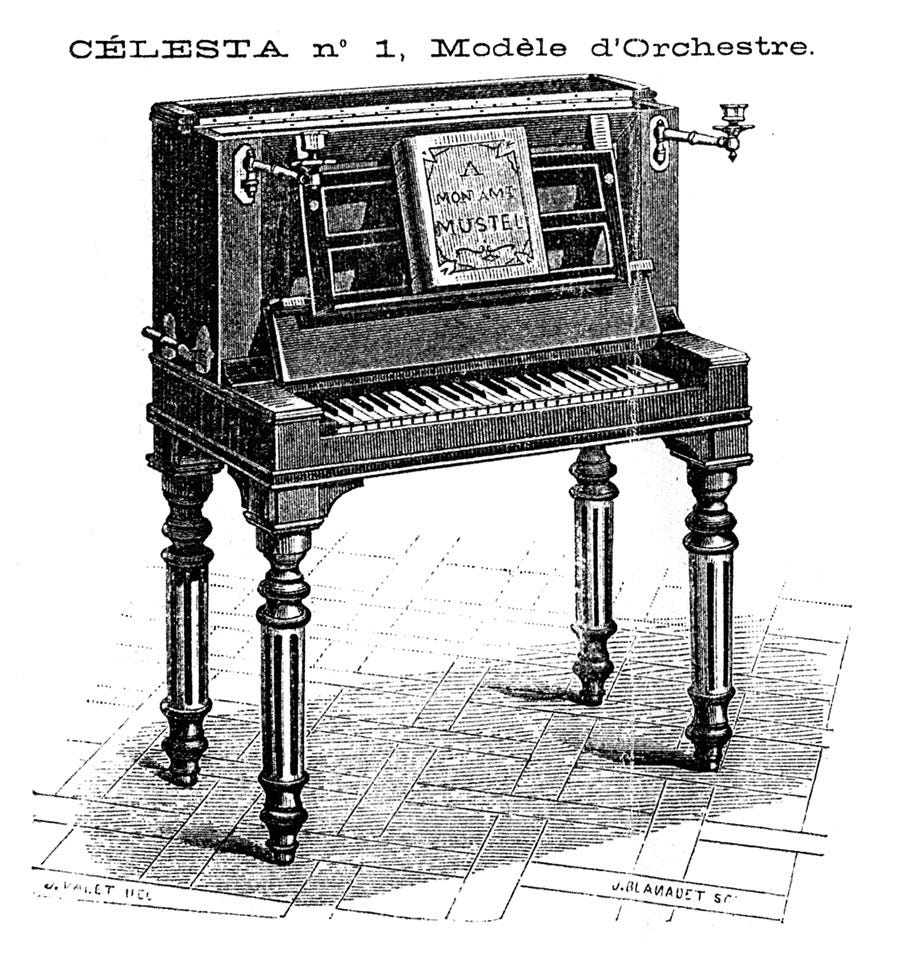Five Bullets 12.6.24
Tchaikovsky's Celesta, Becoming Led Zeppelin, Walpole New Hampshire & more.

Good Morning and Happy Friday.
This morning in New York City is cold and blustery with clear blue skies. Winter seems to have arrived early. Lately I’ve found this time of year inspiring - something about the cold air and the winter light. I’ve been writing in the early morning hours, reading a few good books and watching movies, and long walks along the East River at sunset. I’m hopeful about wrapping up projects and ending the year on a high note.
This week’s bullets:
Aging: Julia Hawkins, who started sprinting at age 100, passed away in October at 108 years old. Hawkins set records in the 100-meter dash for her age group, earning her the nickname “Hurricane”. When asked about her secret for long life Hawkins credited her husband with whom she shared many “magical moments”, saying “marry a good man and your life will be wonderful.” Hawkins donated her body to a Louisiana State University research center.
Documentary: Becoming Led Zeppelin. Finally! Jimmy Page, Robert Plant, and John Paul Jones will be releasing a documentary about the band’s history with personal archive footage including an unreleased interview with drummer John Bonham. [The band’s groundbreaking live album The Song Remains The Same was one of my most-listened to albums this year].
History: The Land That Allowed Ken Burns to Raise the Dead. For over 40 years, documentary filmmaker Ken Burns has lived in Walpole, New Hampshire [imagine my surprise!]. Burns made the town of 4,000 his base of operations, allowing him to escape city life to focus on his making documentaries on the Civil War, jazz, baseball, among others. Walpole, NH was named after a Parliament member friendly to the ‘colonies’ who would become the first prime minister of Great Britain, Sir Robert Walpole. Burns is currently working on an American Revolution documentary to be released next year.
Music: The dreamy, magical sound of the celesta that was first popularized in Dance of the Sugar Plum Fairy from Tchaikovsky’s Nutcracker Suite made it’s way to top 40 hits by Buddy Holly, Marvin Gaye and Tammi Terrell, and John Williams’s movie soundtracks. Tchaikovsky first heard the piano-like instrument in 1891 Paris, where it was invented by Auguste Mustel five years earlier. Tchaikovsky wasn’t the first to use the instrument, which hammers metal bars similar to a glockenspiel, but knew it would perfect to use as the centerpiece of his magical dance.
Science: Nat Geo’s six watershed moments in 2024 that will shape the future includes the discovery of our solar system’s hidden oceans, mapping a fruit fly’s brain, learning that humans age in bursts, and how artificial intelligence will help researchers learn about proteins.
That’s all for this week. I really enjoy getting this weekly list together. It gives me a reason to explore my interests, learn more, and share it with you.
If you’d like to read more, subscribe to get five bullets of stuff I’m hearing, reading and seeing in your inbox every Friday.
Have a great weekend,
Keith.



As a native of Walpole, Massachusetts, that third bullet really hit home for me! Although our biggest claim to fame was a maximum security prison that closed this year, it's nice to know Burns exists in a parallel Walpole universe.